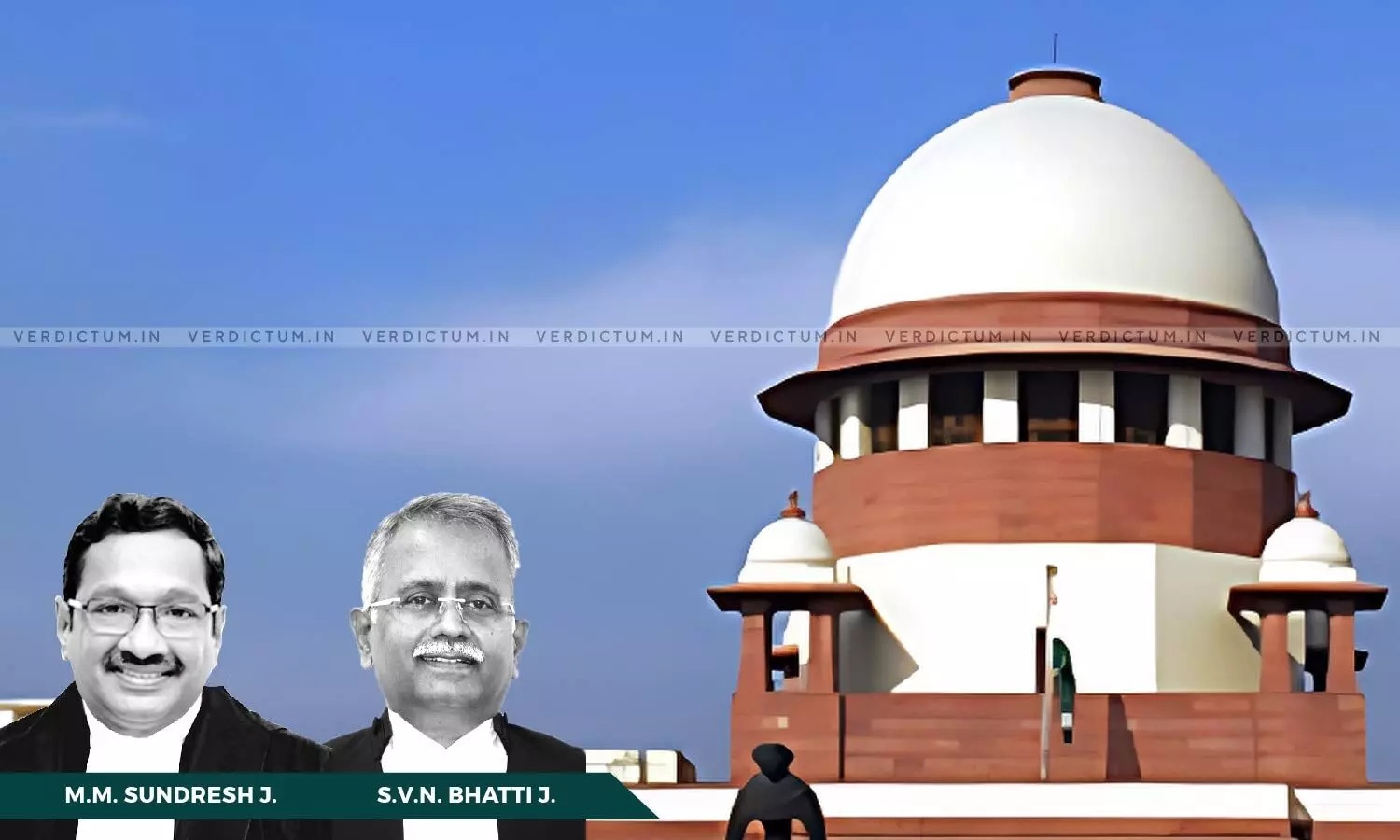
Waqf Tribunal Is Only An Adjudicating Authority: SC While Holding That Waqf Board And Not Tribunal Has Jurisdiction To Decide Administrative Issues Pertaining To Mutawalliship
 |
|The Apex Court has held that the Waqf Tribunal is only an adjudicating authority and that issues pertaining to the appointment of Mutawalli are to be decided by the Waft Board.
The Bench of Justice M M Sundresh and Justice S V N Bhatti ruled that “the Waqf Tribunal is only an adjudicating authority over a dispute while the Waqf Board is expected to deal with any issue pertaining to administration”.
The Court was considering an appeal against a Kerala High Court's Judgment which held that only the Waqf Tribunal, not the Waqf Board has the jurisdiction and authority to decide on the appointment of Mutawalli.
Both the parties claimed their respective rights to Sheikhship and Mutawalliship before the Waqf Board. By an elaborate order, the Waqf Board ruled in favor of the applicant and declared him to be a Mutawalli. Being aggrieved, respondents filed an application by invoking Section 83 of the Waqf Act,1995 before the Waqf Tribunal. The Waqf Tribunal, after affording opportunities to both sides, inter alia, held that there is no perversity in the decision rendered by the Waqf Board.
On the issue of jurisdiction, a plea was also taken before the Waqf Board and the Waqf Tribunal. The respondents argued that the Waqf Board lacked jurisdiction because the Waqf Tribunal has the original jurisdiction to decide on matters pertaining to Mutawalliship.
After a revision was filed, the High Court set aside the judgment and decree of the Waqf Tribunal by holding that the Waqf Board did not have the jurisdiction and, therefore, the matter had to be decided afresh only by the Waqf Tribunal.
The Supreme Court held, “We are inclined to hold that the impugned order cannot be sustained in the eyes of law as the Waqf Board has rightly exercised the jurisdiction in exercise of power conferred under Section 32(2)(g) read with the definition under Section 3(i) which defines a ‘Mutawalli".
The Bench decided that the Waqf Tribunal is considered a civil court with the same powers that the civil court may exercise under the Code of Civil Procedure, 1908, after perusing Section 83 subSections (5) and (7) of the Act, which deals with the powers of the Tribunal.
The definition, Section 3(i) refers to "competent authority," which further clarifies that the Waqf Board, not the Waqf Tribunal, is the body with jurisdiction. The Court held that the Waqf Tribunal is only an adjudicating authority over a dispute while the Waqf Board is expected to deal with any issue pertaining to administration.
The Bench ruled that the impugned order cannot be sustained in relegating the matter to an adjudicating authority by treating it as a competent authority, which is none other than the Waqf Board.
The Court remitted the matter to the High Court to decide the revision on merits, in accordance with the law, except the issue of jurisdiction as decided by the Apex Court in this appeal.
Further, the Bench asked the High Court to expedite the hearing and make an endeavour to dispose it of as early as possible in view of the fact that the revision is of the year 2015 and the dispute is pending from the year 1987 onwards.
Cause Title: S V Cheriyakoya Thangal V. S.V P Pookoya & Ors
Appearance:
Appellant: Advocates R. Balasubrahmaniam, K. Gireesh Kumar, Shine P. Sasidhar, Linto K.B., and AOR Yom Joseph
Respondents: Advocates Hariprasad A, Bijo M Joy, Nivethitha R. Menon, Pranav Krishna, Aditya Verma, Tarun Kumar, Rajesh Singh Chauhan, and AOR Mukesh Kumar Maroria and K. Rajeev
Click here to read/download Order